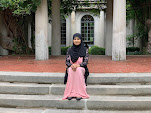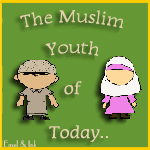There are many places in the Qur’an where Allah (Subhanhu wa Ta’ala) commands us to follow the Sunnah of the Prophet Muhammed (peace and blessings be upon him) for example Allah (Subhanhu wa Ta’ala) tells us, the meaning of which in English is: “He who obeys the Messenger has indeed obeyed Allah… ” (4:80)
As we are currently in the month of Ramadan, committing ourselves to following the Sunnah of Muhammed (peace and blessings be upon him), even in the smallest of actions is a great way to take advantage of the vast reward available to us in the great month! Here is a list of 7 easy Sunnahs to implement and revive this Ramadan.
1. To recite Surah Al-Kafiroon & Surah al-Ikhlas
It was the Sunnah of the Messenger of Allah (peace & blessings be upon him) to recite in the Sunnah rak’ah before Fajr & after Maghrib these two surahs.
Abdullah ibn Masud (may Allah (Subhanhu wa Ta’ala) be pleased with him) mentioned, “I cannot count how many times I heard the Messenger of Allah recite, in the two rak’ah after Maghrib and in the two rak’ah before Fajr ‘Say: O disbelievers,’ (Surah Kafiroon – 109) and ‘Say: He is Allah, the One.’ (Surah Al-Ikhlas – 112).” (Related by Ibn Majah and At-Tirmidhi)
As well as the report of Abu Hurayrah (may Allah (Subhanhu wa Ta’ala) be please with him) who said; “The Messenger of Allah recited in the two Sunnah rak`ah of the Fajr prayer Surah Al-Kafiroon (in the first Rak`ah), and Surah Al-Ikhlas (in the second Rak`ah).” (Reported in Muslim)
Not only was this the habit of Muhammed (peace & blessings be upon him) but it was also something he praised and encouraged in others; “He (peace and blessings be upon him) heard a man reciting the former surah in the first rak’ah (Surah Kafiroon), so he said, “This is a slave who believes in his Lord.” Then the man recited the latter surah in the second rak’ah (Surah Al-Ikhlas), so he said, “This is a slave who knows his Lord.” (Al Albani in “The Prophets Prayer Described”)
2. To be generous
Ibn Abbas said, “The Prophet (peace and blessings be upon him) was the most generous of people and he was at his most generous during Ramadan.” (Reported by al-Bukhaari, al-Fath, no. 6)
The Prophet Muhammed (peace & blessings be upon him) was of the best in conduct and character, and whilst we often seek to emulate him in worship most of us often neglect to follow his example of beautiful character and conduct. There are many opportunities for us to be generous during the month of Ramadan; to be generous with our food and share it with other people who are fasting and to be generous with our wealth and spend it for the sake of Allah (Subhanhu wa Ta’ala). So in keeping with the Sunnah and example of the Messenger of Allah (peace & blessings be upon him) we should increase in our generosity this month, and of course be generous towards others outside of Ramadan as well.
3. To use the siwak
It was reported on the authority of ‘Aisha (may Allah be pleased with her) that the Messenger of Allah (peace & blessings be upon him) said regarding the siwak that it “purifies the mouth and is pleasing to the Lord.” (Narrated by al-Nasaa’i, 5; classed as saheeh by al-Albaani in Saheeh al-Nasaa’i) [See also: 6 Ways to Kill Bad Breath Whilst Fasting]
The Prophet (peace & blessings be upon him) also said regarding the siwak, “Were it not that it would cause hardship to my Ummah, I would have commanded them to use the siwak for every prayer.”(Al-Bukhari on the authority of Abu Hurayrah)
This shows that using the siwak is a highly recommended Sunnah at all times especially before the Salah after making wudu and is, insha’Allah, something we could easily implement.
4. To shake hands when greeting each other
The Prophet (peace & blessings be upon him) taught us that, “There are no two Muslims who meet and shake hands with one another, but they will be forgiven before they part.” (Abu Dawood 5212)
Because of this, it was common practice amongst the Sahaba to shake hands when greeting.
Imam Nawawi stated a consensus amongst the scholars on shaking hands when greeting one another to be a Sunnah. (Fath al-Baari (11/55))
This is something that is so easy to implement, especially during the month of Ramadan where so much of our time is spent meeting with other Muslims; whether it is in the Masjid or even when arriving home to meet our families, and yet the reward is so great as it becomes an expiation for our sins! Allahu Akbar!
We must remember, however, that it is not from the Sunnah for men to shake hands with non-related women and vice-versa. For it is reported in the Sunnah that the Messenger of Allah (peace and blessings be upon him) did not shake hands with women. (Narrated by al-Nasaa’i (4181) and Ibn Maajah, 2874; classed as saheeh by al-Albaani in Saheeh al-Jaami’, 2513)
5. To seek forgiveness
The Prophet of Allah (peace and blessings be upon him) used to repent to Allah and make istigfar over 100 times a day! So it is from the Sunnah that we should make istigfar regularly throughout the day.
The month of Ramadan is a perfect opportunity to seek forgiveness from Allah (Subhanhu wa
Ta’ala) for all of our shortcomings and bad actions. It is a month of many names one of them being the “month of mercy”.
A good du’a to memorize and use is the supplication of Yunus (peace be upon him): “There is no god but You alone, Glory be to You, surely I was one of the wrongdoers”.
6. To put the right shoe on first
It has been narrated on the authority of Abu Hurayrah (may Allah (Subhanhu wa Ta’ala) be pleased with him) that the Messenger of Allah (peace and blessings be upon him) said, “If one of you puts on shoes , let him begin with the right. And when he takes them off let him begin with the left. And let him take them both off or leave them both on.”
This is, subhan Allah, such an easy Sunnah to implement. We put on and take off our shoes at least once a day if not more and with the correct intention of following the Sunnah of the Prophet (peace and blessings be upon him) we could be rewarded for it!
7. To take advantage of the accepted hour of prayer
The Messenger of Allah (peace and blessings be upon him) told us of an hour on youm el-Jummah (Fridays) where Allah (Subhanhu wa Ta’ala) responds to the supplication of the Muslim. It is an hour between ‘Asr and Maghrib salah. The Prophet (peace and blessings be upon him) told us, “Du’a is worship” (in an authenticated hadith reported by Ahmad and others from Nu’man ibn Bashir as reported in Saheeh al-Jami #3407) and Allah (Subhanhu wa Ta’ala) has said, the meaning of which in English is, “Verily, your Lord has said “Call upon Me, and I will answer you!” Those who are arrogant to worship Allah will enter Hell, humiliated.” (Qur’an, 40:60)
So insha’Allah Ta’ala this opportunity to ask Allah should not be ignored.
Allah (Subhanhu wa Ta’ala) says what means in English, “Indeed in the Messenger of Allah (Muhammed) you have a good example to follow for him who hopes for (the meeting with) Allah and the Last Day and remembers Allah much. ”
So let us start to follow this example from today insha’Allah Ta’ala.
About the Author
The ReviveASunnah blog project aims to encourage the following of the most beautiful of examples by reminding us of actions from the Sunnah of the Messenger of Allah (peace & blessings be upon him) which we can easily implement into our daily lives. Insha’Allah Ta’ala, check out: http://reviveasunnah.wordpress.com/
Source: http://productiveramadan.com/?p=992
Subscribe to:
Post Comments (Atom)





No comments:
Post a Comment